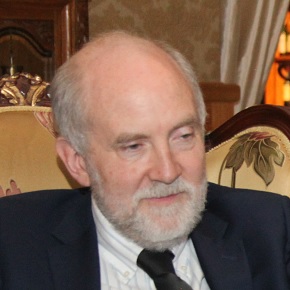 |
||
|
Deputy Director General of ROSATOM Nikolai Spasskiy held negotiations in the Kyrgyz Republic The Department of Communications of ROSATOM, PUBLISHED 16.02.2019 Extraordinary and Plenipotentiary Ambassador of the Russian Federation to the Kyrgyz Republic Andrei Krutko and Deputy Director General for International Relations of ROSATOM Nikolai Spasskiy February 13, 2019 held negotiations with Minister of Emergency Situations of the Kyrgyz Republic Nurbolot Mirzahmedov and met First Vice Prime Minister of the Kyrgyz Republic Kubatbek Boronov. Director for the state policy on radioactive waste, spent nuclear fuel and decommissioning of radiation-hazardous facilities of ROSATOM Oleg Kryukov and General Director of JSC Atomredmetzoloto Vladimir Verkhovtsev also took part in the negotiations. They discussed the entire range of issues concerning implementation of the second stage of the interstate target program ‘Restoration of territories affected by uranium-mining facilities’ in Kirgizia. The parties were satisfied with the program progress. In particular, it was noted that the tail dump Kaiji-Sai will complete all works by late February 2019. As regards the tail dump Tuyuk-Suu and other facilities near settlement Min-Kush, the main approaches for further work organizing has been agreed upon. The approached agreements were recorded in a protocol signed by State Secretary of the Ministry of Emergency Situations of the Kyrgyz Republic Azamat Mambetov. There is a clear understanding that both parties would control the dates set by the protocol. Topics: Russia Other news: 452 nuclear units are operating in the world Another 55 units have the status of the being built one. The MoU was signed at the 9th Session of the High-Level Russia-Singapore Inter-Governmental Commission in Singapore. Nuclear fuel loading has commenced at the 4th power unit of Tianwan NPP On August 25, 2018 the first fuel assembly was loaded into the core of Tianwan NPP Unit 4 in China. |
Hero of the day 
Matthew Bunn: we can still work together I think the fact that the world's two largest nuclear complexes are proceeding in total isolation from each other is a danger to each of us and a danger to the rest of the world as well. And we have to find the way to fix it. INTERVIEW
Amparo Gonzalez Espartero OPINION
Chirayu Batra |

